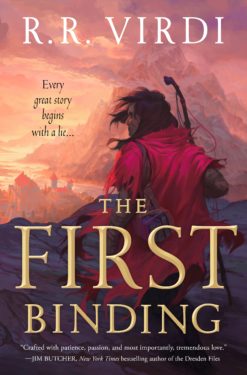 All legends are born of truths. And just as much lies. These are mine. Judge me for what you will. But you will hear my story first.
All legends are born of truths. And just as much lies. These are mine. Judge me for what you will. But you will hear my story first.
I buried the village of Ampur under a mountain of ice and snow. Then I killed their god. I’ve stolen old magics and been cursed for it. I started a war with those that walked before mankind and lost the princess I loved, and wanted to save. I’ve called lightning and bound fire. I am legend. And I am a monster.
My name is Ari.
And this is the story of how I let loose the first evil.
Please enjoy this excerpt of opens in a new windowThe First Binding by R.R. Virdi, on sale 8.16.22.
ONE
A Conversation in Stillness
I walked into the tavern in search of the most important thing in the world.
A story.
And I ended up swept into the most dangerous one of all.
The worst sort of prison held the Three Tales Tavern.
An emptiness.
A stillness.
And that is always meant to be broken.
It hung like a cord gone taut, quivering and waiting to snap. It was the quiet of held breaths, wanting for a voice, but ready to bite at any that dare make noise. It was the soundlessness of men too tired to speak and with an ear to hear even less. And all the stillness of an audience waiting for the play to begin.
The perfect stage for me. And I had just the thing to rouse them—ensnare them. But all good performances need one thing, and mine required a drink.
The tavern’s lone mirror glinted from behind the counter with the hazy light I’d seen accompany mirages. It pulled my attention past the oiled and polished floors, away from the pitted, but solid wooden beams holding the place up, and to the counter.
I made my way over to it and sat down—alone.
The barkeeper took note of that, staring at me over the rim of a glass he polished with mechanical coldness. He looked to be in his middle years. His hair carried more streaks of chalk and iron than it should have at his age, thinning along the top. He had a soft, slightly protruding belly, not aided in appearance by a brown shirt gone tight around his waist nor his barrel of a chest. His eyes were lined with creases that could have come from both too much time in the sun and frequent smiling.
Though, he wasn’t smiling now.
I eyed the barkeeper, adding another layer of stillness to the place. The air thickened into something chewable as I let curiosity flood the elderly men sitting in the far corner. They watched me with the interest only those with too much time on their hands could muster, which is what I wanted.
I know how to work my audience—build anticipation like feeding wood to a fire.
Layers.
I added another film of intrigue when I reached over my shoulder to grab one of the journals bound to my back. I tugged it free, thumbing it open to pull free a sheet of paper. Producing the pen was a simple thing, but I added a flare by rolling my wrist as I retrieved it from the folds of my robes. To those unskilled in sleight of hand, it looked as if the pen had sprung from my palm.
Theatricality and showmanship go a long way in making an impression. And the long case I’d set down to one side would do just the same.
Curiosity. It filled them now.
The slender piece of horn and silver inlay sat as an old comfort in my hand. A hollow thing with a narrow reservoir to hold just enough ink for my needs. I scrawled slowly, smoothly, across the sheet.
The barkeep watched with feigned disinterest, blanketing the place with another form of stillness. He shuffled over a few steps until he stood before me. The man passed off the action as if he needed to place the glass he’d finished cleaning somewhere nearby.
I knew better and made use of his act, pushing the sheet of paper in his direction. I looked up and smiled—waiting.
The barkeeper glanced at the sheet, then blinked and stared past me to the trio of patrons in the back. Another moment of stillness slipped by before he relented and plucked the paper between a thumb and forefinger. His eyes were the color of morning fog over water, a bleak gray masking the faintest hints of washed-out blue. They hardened into cold slate as he read over my note. If he took umbrage at my odd request, he didn’t show it.
The man turned to pull a wooden mug from a brass hook hanging overhead. He took a measured step to the side and flicked the tap of a cask, waiting as a liquid the color of wet earth poured into the mug. The barkeep shut the valve and turned with a quarter step to place the drink before me. He stood and loomed like a figure of stone, wanting to know just as much as the men in the back what came next.
I kept them waiting as I pulled the mug toward me. It was one thing to order a drink. It was another matter to ask for one without a word, much less pay. It had the intended effect.
Hollow moans echoed through the tavern as chair legs scraped against the floor.
I looked toward the source of the noise without turning my head. The three men in the corner had all moved to face me now. I returned my attention to the contents of my drink. I’d asked for tea. He’d given me an ale.
I didn’t say anything. I know when I’m being pressed—tested. And I know how to play back. Most innkeepers do not want to deal with prickly performers, easily slighted and twice the trouble than they’re worth in coin. I shrugged my cowl free, letting it fall along my collar as I tipped the mug back.
Notes of cinnamon, cardamom, and woodruff sparked against my tongue. The faintest touch of anise made itself present through the clearness and crispness of the drink. I took care not to smack my lips or exhale a pleasurable sigh at its taste.
Stillness.
I continued to build it until I could almost hear the men’s hearts pumping in agitation, answering their buried questions: Who am I? Who is the stranger in the red cloak and cowl? What rests within the case at my side?
I took another sip and waited for them to break the quiet that lingered before I’d even come in.
The barkeeper hovered before me, staring with the clear intent of wanting recompense for the beverage.
He’d get it and more.
One of the men sputtered. “It moved. His cloak moved on its own.”
It did. And the silence broke.
Another of the men, old enough to be someone’s grandfather, brushed aside wisps of white hair from over his eyes. “Swore the thing was . . . bleeding for a moment.”
It was.
I let them gossip. And when I shifted in my seat, resting my staff in plain view, their whispers grew all the louder.
“Man comes in silence, doesn’t spit so much as a word. Staff and cowl. Mess of books on his back,” said one of the men.
All true.
“Only heard of one man like that. Hear it that he keeps his words inside him—deep, like a burning fire. When he speaks, everyone listens like magic. Can’t no man turn away from his tales. He’s that storyteller.”
I grabbed my staff, spinning in place and slamming its base against the floorboards. A thunderous crack echoed through the tavern and my voice boomed with it. “I am.”
And stillness returned in the beat between words.
I seized it. The pauses now belonged to me. And I decided when to break them.
One of the men fidgeted, grinding the tip of a worn boot against the floor. He wore dark breeches and a matching shirt. His coat had seen better days, the seams littered with dangling threads, some frayed. Dust from the road marred its already dull gray color. The man looked to be carved from driftwood left in the rain and cold to crack. His face was old leather, dark and lined. He bounced a leg in anticipation.
“I am the Storyteller. I’ve entertained the duke of Tarvinter with tales of daring and heroism. I’ve collected the world’s secrets, forgotten stories, greatest legends, and tonight . . . I’ll share them with you. But, every storyteller needs a willing audience. So find me one if you want an earful you’ll never forget.” I bowed, rolling my hands in a flourish.
The three men ran for the exit with more energy in their step than someone half their age could have mustered.
I turned back to the barkeeper, smiling in earnest and tipping back more of the ale. The next sip earned me my repressed sigh as I pulled the mug from my lips. “That’s good.” I hooked a thumb over a shoulder toward the door. “And, that’s why you gave it to me for free. How many people do you think they’ll rally for tonight?”
The barkeeper placed his hands against the counter. “Folk in Karchetta have been starved for outside news—stories. Place will be packed tonight.” A hint of light filled his eyes. “Busy. Customers willing to spend money. Wanting entertainment. I hope you live up to your reputation.”
I raised the mug. “I always do.”
The bartender snorted. “You’re just as bad as the woman.”
I arched a brow, waiting for him to explain.
He looked over to the staircase to our side. “You’ll run across her, no doubt. Has a mouth—fire in her. Not quite sure why I haven’t booted her out myself.” The barkeeper grabbed a rag, idly polishing a spot on the counter while regarding me.
Quiet returned, but I’d had my fill of that. “You said people are hungry for word from outside. What of news here? By the look of the people, I’d say it’s grim.”
The barkeeper pulled the rag away from the spot, frowning as he stared deeply into it. “You don’t know?”
It’s a rare thing for me not to know stories, the happenings of and in the world, but there are those moments. And I sought something more important than the local gossip.
I shook my head.
He exhaled. “There’s a reason the Three Tales is without any stories of late. Etaynia has enough of her own keeping people’s attention. The prince-elect was murdered over a set ago.”
I did the mental calculation of days the region used to mark a notable passing of time. It came out to fourteen, and two of those comprised a month here. Sets of days varied through countries along the Golden Road. No standardized monthly cycle existed as of yet, and the political tension between some countries made it nearly impossible to get there. I waved for him to continue.
“His younger brother took his place as an efante, but the election will be held again. The other household princes used the death to plead the church for reconsideration. Seven efantes are back to fighting, worrying people of what’s to come. But it’ll be the same. Prince-elect to king. Once that happens, people will breathe easier. There’ll be more room for stories, I hope. Never know what the next man on the throne will do, and one prince or two already have their eye on joining the wars sprouting up around the world.” The barkeeper resumed polishing the indiscriminate spot on the counter.
“Though, if you ask me—not that anyone does, mind you—I’d say we ought to be staying out of the affairs of other countries. Not the efantes, though. Some of them seem too keen to be king just to stick our noses where we’ll be stung for it. Mark my words, Storyteller.”
Murdered. My thoughts remained on that singular word. So I asked the question I shouldn’t have, but being a storyteller is being part gossip. “Who do you think did it?” I tilted the mug, watching him over the rim as I drank.
He held his composure better than I credited him to do. The muscles in his neck went tight, shooting a rod through his collar and shoulders that straightened his posture noticeably. “Don’t know. I’m far from a wise man, but I’d echo what they’d say here. It’s not healthy for a man to think on that. More so to finger a man for doing so.”
I decided to change the subject. If the town of Karchetta was worried over their country’s election, talking about it would only sour the locals against me. And I needed them to like me—love me—if I wanted to earn free meals and a place to sleep that didn’t involve dangerously close proximities with a horse. Accidentally speaking ill of one of Etaynia’s princes would all but guarantee that outcome.
One never knew whom another person favored as a leader.
“Have you heard any other stories? Anything worthwhile pass through here?” I leaned forward, resting on my elbows.
The barkeeper snorted. “You mean any stories you deem worthwhile. I’ve heard you’re a picky fellow.”
I smiled. “I am. I’ve heard almost every story the world’s had to tell. Witnessed some legends.” And been part of my fair share. Though, I wish I hadn’t. “I’m still seeking that special one, the tale of tales that needs a proper teller to tell it.”
The barkeeper’s eyes lost their focus as he silently mouthed along with what I had said. “Bit of a mouthful there.”
“I do that on occasion. Nature of my profession.”
The barkeeper snorted. “I’ve heard a bit about that too.” He paused, frowning at a spot near the corner of the counter. Its wood was the color of sandstone smothered in honey, and a portion of its surface refused to carry the luster of the rest. The barkeeper breathed over the spot, putting more weight behind his polishing. The area still turned away the light. “Ah.” He tossed the rag toward me.
I snatched it out of the air, waving it before folding it into a tight square. The cloth was the color found in dried blood, hanging somewhere between a rotten plum and red wine. The fabric’s fibers had been worn to the point they’d tear soon. A hint of pressure and my thumbs would punch clean through.
He always used this rag, but a glance past the man revealed several others. Newer, by the looks of them, stacked alongside a pair of bottles.
The question was: Why?
And the answer was equally as simple: It was important. There was a story behind it.
There’s a story behind everything and everyone—powerful tales, even if they don’t seem it on the surface. There’s power in stories. There’s magic in them. And each person’s life is a story itself, and with that, every person carries magic within them.
And all of us are taught over the years how to forget it—lose it.
My job is to remind you.
I gestured to the spot he’d been trying to clean. “May I?”
The barkeeper pushed off the counter, crossing his arms as he nodded. “Be my guest.”
“I intend to.” I rose, slipping off the sling of books hanging over my shoulder. The leather thong bound a handful of stories I’d collected over years. And one in particular contained some things that should only have been recorded, but never shared and said aloud.
Some secrets need to be buried.
I set the bundle down on my stool, straightening my staff as I moved by. My thumbs and forefingers kneaded the cloth as I came to the spot. “What’s the story behind this?”
“What?”
My fingers brushed over the counter. It felt like river stone, smooth, but hints of a porous surface remained. “The story behind this old piece of cloth. Or is there not a reason you’ve held on to it for so long when there are several perfectly usable ones behind you.” I didn’t bother looking up, regarding the lackluster portion of the counter. The wood was old, yet held bands of morning light across its grain, nearly glimmering.
I breathed it in. It smelled of lemon and oils. He’d treated it regularly.
Most innkeepers tended to their establishments with the care you’d expect of a business owner knowing the worth of their investment. This went beyond that. The Three Tales Tavern was special to him. At least, parts of it were.
I took the rag and leaned closer to the counter’s surface, breathing lightly over the spot.
“You’ll laugh at me.” The barkeeper let out a rueful chuckle. “It’s a silly thing—a woman was involved.”
There always is—always. I motioned for him to go on as I exhaled onto the wood again.
“How old do you think this place is?”
I missed a beat, blinking and forgetting about the blemished wood. There were many answers, many ways to be right. I could tell him it was at least a few decades. I’d be right, yet off the mark. I could say it had been around long enough to become an important place in Karchetta. It was the truth.
But all of it would fall short of the best answer I could give—the needed one.
“I don’t know, but I’d like to hear that story as well.” Because I have a feeling they’re tied together.
Everyone has stories they’ve collected inside them, and one of the most important things you can do is let those be given voice. People need to be able to share their memories with an audience that cares.
And I could be that audience.
He cleared his throat, turning to grab the glass he’d cleaned earlier. He ran a thumb over its lip, and the edge of it sang with a low but audible hum. He filled his glass from the same cask as before with the measured patience of someone who had all the time in the world.
“It’s better in glass,” he said after taking a long, slow sip. “People don’t know that. Not many. And no one tells you. I didn’t know myself till I met her.”
Her. How so many stories start. My mouth broke into a smile, but it was short-lived. I knew how those sorts of stories often ended.
“I didn’t have much in life.” The barkeeper shook his head, more to himself, tipping his glass back for another swallow. “Didn’t think I’d go anywhere either.” A lazy grin spread over his face as he looked around his tavern. “Guess you could say I still haven’t. But it was her that changed things.”
I placed the folded cloth over the blemish, rubbing it more for appearance’s sake than anything else.
“Karchetta isn’t much of a place, you know? Everyone goes west eventually to the seas. Fishing, now that’s a good life. Bring home food if you don’t make bits. But Etaynia is a land for fishing.” He spoke matter-of-factly.
“But truth be told, and it’s a shameful thing for a man to admit here, I can’t swim. Not much use for a fisherman that can’t weather the sea. So what’s a young man to do?”
I polished harder, giving him my full attention.
“Can’t fish, well, you sail. Keep hearing tell there’s a whole wide world out there to see.” He paused for a long moment, eyeing me sideways. “See, sailors. Because of the sea?”
I gave him a thin smile. “Clever. I must be tired is all.” I scrubbed harder, losing myself in the repetitive action. My mind slipped into a series of folds. First, in half. I became aware of only two things: the dull spot on the counter, and the now distant words of the barkeeper. Another fold, now into fours. My mind cleared and there was only the mark on the counter. The other three places were without thought or image. My mind folded again. Eight places.
Just the spot on the counter remained. A portion of wood unlike the rest, but needing to be restored. The thought intensified and I strung another image to it. I envisioned the counter as it once was. The wood carried a deeper light, new and warm.
“Was like many men, young and full of ideas. Not a whit of a notion on how to make any of them happen. And, well, could always farm. But, need a herd, or at least enough bits to have the start of one. Where’s a man to get that? Wasn’t much good with my hands either. Couldn’t build, couldn’t apprentice to anyone in a craft that made you a decent living, and that’s what I wanted. So, I tell myself to just go out and travel. Travel does a man a lot of good, or so I’ve heard.”
It does.
“But that takes money, too. You can see I’m not good at planning. Life’s too”—he waved a dismissive hand—“it just happens, you know? Not much a man can do to deal with that. So, what could I do?”
I stayed silent, folding my mind again. There was just the nature of the counter, clean but for one spot. Then there was the truth inside running opposite to the one before me. In my mind, the wood was uniform and perfect. I held to that image. My mind folded again; each square, like parchment, carried the singular vision I’d crafted.
“Well, figured first ought to clear my thoughts. Headed for the only tavern around.” He laughed to himself. “And no, wasn’t this place. Not yet, anyhow.”
The words rang dull and hollow to me. I remained fixed on my task. Every fiber of my being, my mind, believed in that spot matching the rest of the counter’s luster.
I breathed over it again. “Start with whent.” My mind folded again, becoming a multifaceted lens all mirroring the same image countless times. More faith than I’d called on in a long time welled inside me, and I applied it to the belief that the bar was as bright and flawless as when it was made. “Then go to ern.” I wiped the cloth along the spot, pulling it back.
A perfectly polished counter sat before me, reflecting things better left unseen.
I’d grown a few days’ worth of coal beard over my face. My hair was dark as night and just as wild. The long locks fell to just below my chin, caught between being waves and curls. My eyes were a shade darker than the counter. A color somewhere between bright amber and cedar.
“Solus and shadow, boy! I thought you were going to try your hand at cleaning a spot, not the whole counter. Didn’t even see you move.” The barkeeper blinked hard before rubbing a palm against each eye. He downed his glass the next instant. “Must’ve gotten lost in my own tale.” He snorted, putting the drink down. “It’s good to see this old thing like this, but it’s not like it was. I can see myself in it, hah!” He let out a rolling laugh that faded into a heavy sigh. “Wish you could’ve seen it, Rita.”
I perked up, shaking myself of the reverie and the hint of power I’d called upon. “Who’s Rita?”
I had an idea, but some stories are better left in the hands of those that lived them. Some tales just aren’t meant for professionals. There are things missing from them: the way your voice changes speaking about someone you love, the hollow knots that fill you and make their way out of your mouth when talking about pain, and the hot metal that comes with rage.
A good storyteller can mimic those, but some stories are best served raw.
“Hm? Oh, Rita was . . . she was behind all this.” He waved a hand absently to our surroundings. “Found me young, the best time for a boy to meet that special girl, you know? Though, come to think of it”—he frowned deeply— “suppose there’s no wrong time to meet them, so long as you do. There’s a change in luck—fortune—in meeting the right one. Anyhow, was lost without wind and sails, if you’ll pardon the expression.”
I nodded, understanding.
Etaynia was a coastal kingdom, reaping its riches from trade, fishing, exploration, and an immeasurable amount of wealth from salt. Everything revolved around the sun and seas here. The warm climate allowed for vast swaths of land to be dedicated to agriculture, grains in particular. These were well cared for, and by hardworking people. The only thing ever keeping them down was religion and the affairs of their seven efantes—princes.
He went on as if I hadn’t lost myself in thought. “Rita was a thing.”
Was. My heart ached for a moment.
I knew where this story was going.
“She had a mind and the wit to go with it. Caught me at Solus du Novre, festival of the new sun. Season of gray skies and hard seas, little light, all past. We were back to clear and bright mornings. Should’ve seen her, Storyteller. Dressed like the sun she was. All rippling red and orange. She’d made it herself. Always good with her hands.” He smiled, the sort where it reached his eyes and made him look years younger. “Was like watching leaves twirling in the wind, the way she spun and danced. You know what that’s like?”
I kept silent, letting him find his own answer.
“But you’re young. Suspect you’ve found a fair few girls to tumble with.” He fixed me with a knowing look. “But not the one, am I right?”
He wasn’t, but I nodded.
“Well, don’t know how, but she took to me. Never questioned it much after that. Man shouldn’t question good luck and fortune. When Solus gives, he gives bountifully. That’s what the sun does, hm? She convinced me that I did have a way to make a life and way in this world. Wasn’t much good at a craft, but I was strong and willing. I took whatever work I could find. Carried loads for merchants out by the coast, far from home. Sent money back to Rita, and you know, she waited for me. She did.” His smile grew.
“I moved lumber for shipbuilders. Cleaned decks and scraped ships clear of filth. Worked for glassmakers far out where the bigger churches are, helping lift the big pieces they fit up high in the towers.
“Did it for years, visiting back when I could. We grew closer, Rita and I. We talked about things that young people do. Dreams and such. I spoke of wanting roots back here—home. Didn’t know how to make it happen. Didn’t matter much. See, I’d fallen in love with a terribly clever woman. She’d been putting away every spare bit, septas when I could earn them, all for keeping. And she’d gotten to working with her hands.” He tapped the counter.
“Made this first. A piece, a promise. The idea that one day we’d own our own home, a tavern, a place for all those travelers I never got to be like to come through and rest. A home set in my home. Not a bad dream, huh?”
“No.” It was all I could say at the moment.
“Well, I set back out. Not for long this time, mind you. Got working till I heard word that the old tavern’d burned down.” He frowned, the light leaving his eyes as his face hardened. “Wasn’t the best of places, but it was a good one.” He cleared his throat and extended a hand, gesturing with a thrust of chin to the rag.
I passed it to him.
He took it in silence, polishing the counter despite no need for it. “We’d lost a bit of home and that shook me. Was starting to think I should take what money we’d put away and finally go somewhere else. Rita stood firm as any old oak, telling me she wouldn’t budge on the dream. Remember that, not much more stubborn in this world than a woman when she knows she’s right. Which”—he winked my way—“is almost all of the time. Least, it’s healthier if you live that way. Trust me.
“But she didn’t move. Told me we’d offer to buy what was left of the place, which wasn’t much. But she was as good as her word. Woman spent a day and a night at old Abraham’s door—foreign fellow from off far east who’d settled here. She stood just as firm and solid as she did before me, not budging till he gave in. That was that. Place was ours.” He sucked in a heavy breath before picking up his glass, draining it in a single go.
“So we took to it. I’d leave for a set or two, taking up most of a month. Come home with money and get to work rebuilding the place. First thing we did was put this”—he rapped his knuckles against the countertop—“in place. Built the rest of the Three Tales around it. Took us seven months all told. Most of the whole year went by just so in our labor. But, we’d done it, Rita and I.” He leaned back against the shelf lined with bottles and casks, crossing his arms and letting the day’s stress visibly leave his shoulders and neck.
“We’d made a home and we tended to it. And it went as well as you’d imagine for two young ones who’d gotten ahead of themselves with dreams and love. We had our mishaps. Nearly lost the place a couple of times to our own fires, unscrupulous folk, and a tax collector riling Rita the wrong way so as to catch the rough side of her tongue.” He shook his head and suppressed a laugh. “Bet the fellow still remembers that lashing. But her bark was always worse than her bite.”
I’d met my fair share of folk like that as well.
“But we held on.” His voice grew hollow, a tone I recognized. The sound a story makes when it’s about to change. When a tale turns on its head and you realize it’s not the happily ever after you expected.
This was a tragedy.
And I knew those all too well.
After all, I’d played my part in a fair few.
History would remember those.
“Comes to two years later. We’re doing fine for ourselves, but I’m running the place more and more on my own. See, Rita, strong as she was, was getting more tired by the day. She slept in later. Needed help carrying things. Wasn’t sure what was wrong at first. Thought she’d caught something ill.” He swallowed, taking a long look at the counter. “I was right, but I didn’t think things would go as poorly as they did. That’s for the stories, you know?”
I did.
“She grew paler. Lost the color of the sun in her skin. Her hair went thin, but used to be like, like . . .” He exhaled and tossed the rag beside the clean ones. “It was a dream. It was something.” He picked the rag back up on instinct, folding and kneading it much as I had. “No amount of money, nothing I could do. No prayers to Solus. The church. Nothing could turn away what’d come over her. I did what I could, I swear it.”
“I believe you.” My words carried more weight than I’d intended, reverberating through the nearly empty place.
That seemed to steady him. He nodded to himself. “I did. But, months came and went, as they do. After the fourth, Rita didn’t come back.” He turned from me, bringing the glass over to the cask and refilling it. “That was so many years ago, likely before you were born.” He took a large swig of ale. “But this”—he shook the rag—“is something to remember her by.
“When we fixed up the place, didn’t have much left over for the smaller things, the forgotten ones. Like things to clean. Rita laughed and just tore a patch from her old dress. Then another, and another, sewing them together. Easy, just like that.” He waved the cloth. “Then she set to wiping, still laughing all the while.” The barkeeper smiled, a thin thing trying to be more, like a gash in stone.
“And, well . . . that’s my story.”
I inhaled, bowing my head. “Thank you for sharing that . . .” I let the pause hang in the air.
“Dannil.” He held out his hand.
I took it, holding firm as I shook it. “And you know me by my reputation.”
He snorted. “We’ll see that tonight. I gave you a story. Expect some glorious ones back, the kind folk here won’t soon forget.”
“I promise you that.”
His earlier curiosity returned and Dannil looked over the counter. The man’s gaze fell on the blackwood-and-leather oiled case I’d set on the floor. “Can I ask?”
I nodded, bringing the case up and setting it on the counter. Its clasps snapped open with a hard metallic sound that I had almost forgotten from years past. An old treasure sat inside.
A thing of well-worked wood and polished to a gloss. The black of rich tar and the sunburst orange of dawn. The mandolin lay in two pieces, broken along the neck clean as hammer and chisel parting stone. Its strings cut by a knife as fine as glass. If you were to try to strum the strings, they would play one final note that would say a single word. A word for which there is no word but which could come to mean many things. Profound sorrow. Pain. Regret. Please come back. Begging forgiveness. And most of all, I’m sorry.
But the strings could not be strummed, so there was no word.
No more melody. The mandolin was broken.
And it would never play again.
I could mend many broken things, but not this.
I shut the case. Sometimes the price of memories is too great for remembrance, so the best thing we can do is close the door to those parts of our lives.
Dannil let out a heavy sigh at seeing the state of the instrument. “I’d have asked if you play but—”
“I don’t.” I returned the case to the ground. “But my stories have no need for music. I’ll give you one to remember.”
“Good. But for now, I’ll settle for an explanation.” He gestured to the restored counter again.
My voice was softer than a breeze sifting through low-cut grass, nearly inaudible. “There are ten bindings all men must know.” I hadn’t realized I’d spoken. Old memories and training had risen to the surface, drilled into me over time.
“What’s that?”
I shook my head. “Nothing. Would you like a hand setting up for tonight? I expect a good crowd.”
He nodded and we set to work.
Copyright © 2022 from R.R. Virdi
Pre-Order The First Binding Here:
opens in a new window opens in a new window
opens in a new window opens in a new window
opens in a new window opens in a new window
opens in a new window opens in a new window
opens in a new window
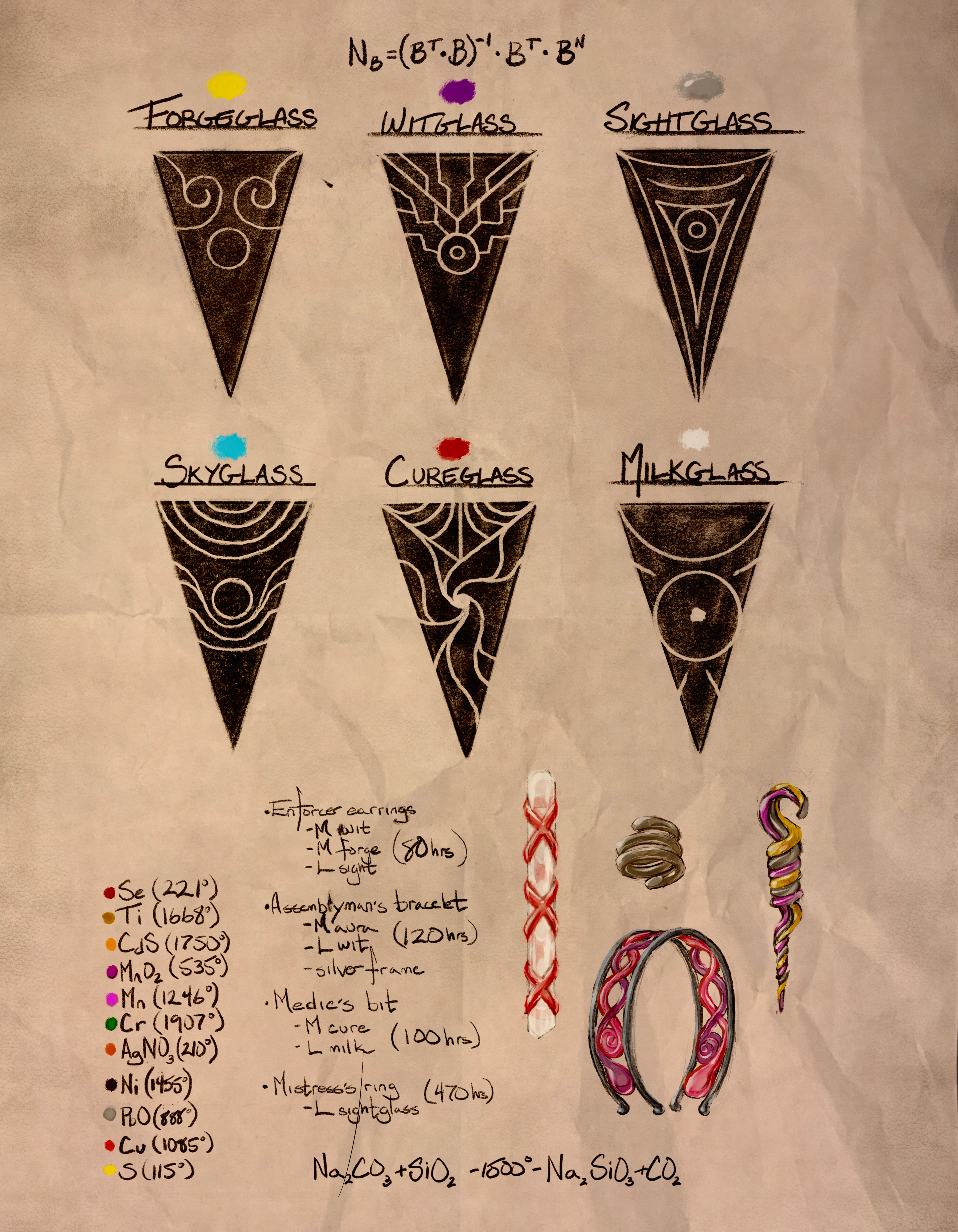
 opens in a new window
opens in a new window opens in a new window
opens in a new window opens in a new window
opens in a new window opens in a new window
opens in a new window

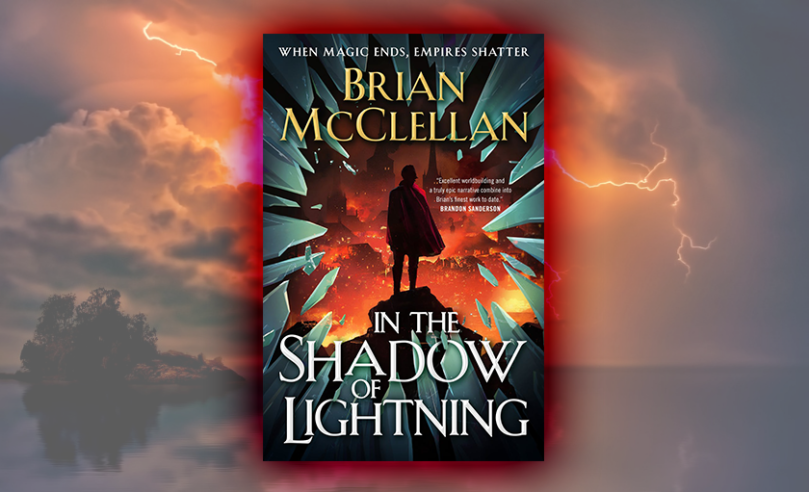
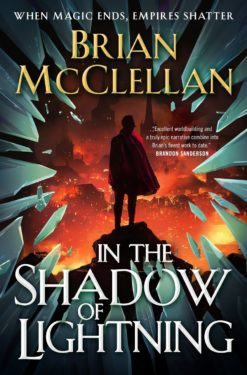

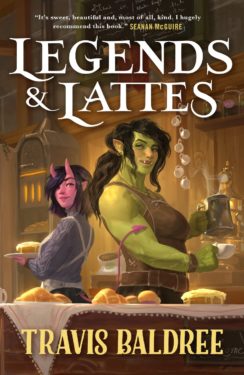 Legends and Lattes
Legends and Lattes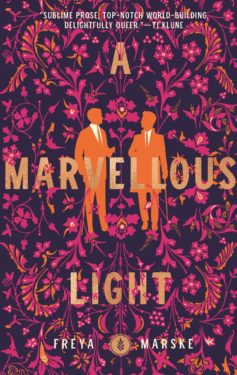 A Marvellous Light
A Marvellous Light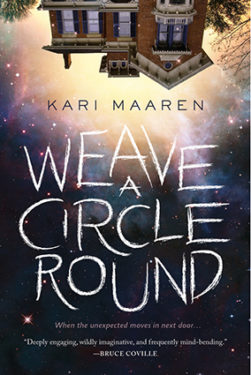
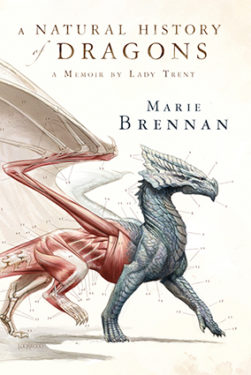
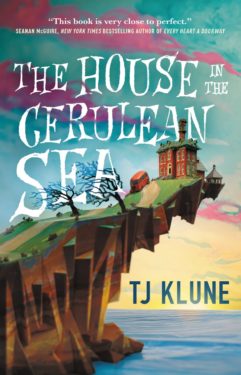 The House in the Cerulean Sea
The House in the Cerulean Sea
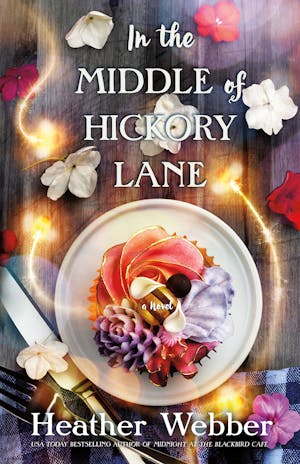

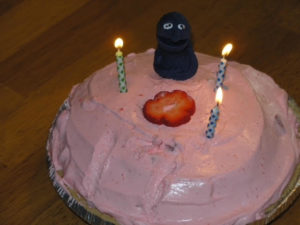
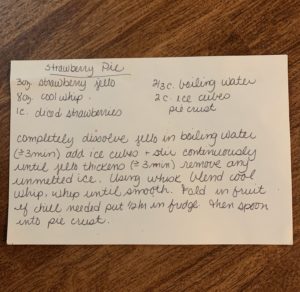


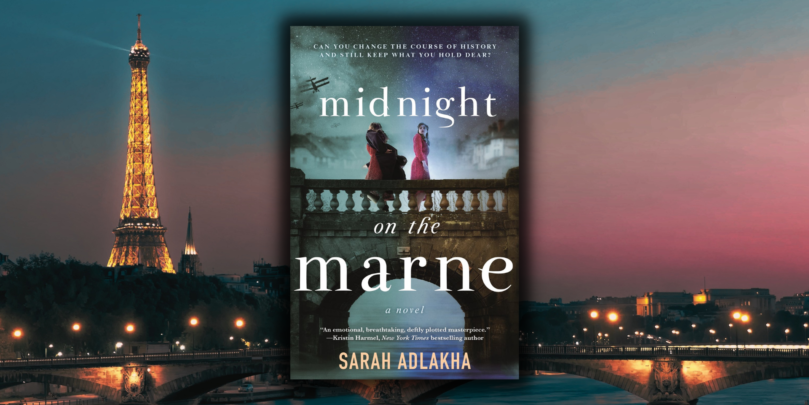
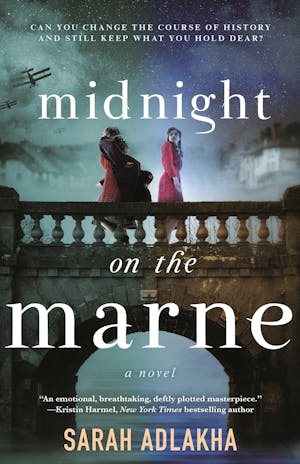
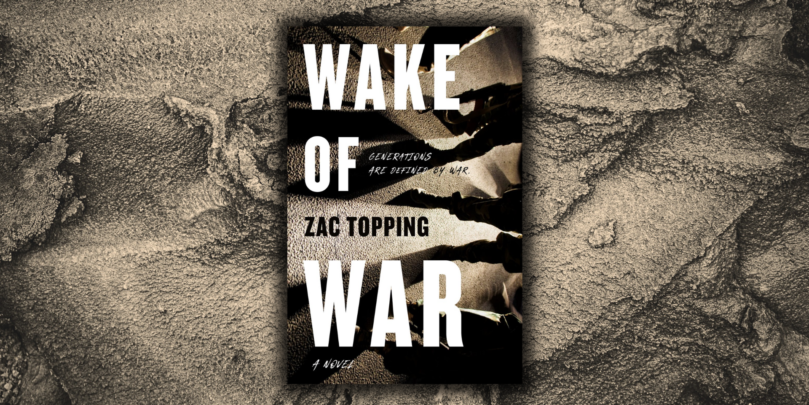

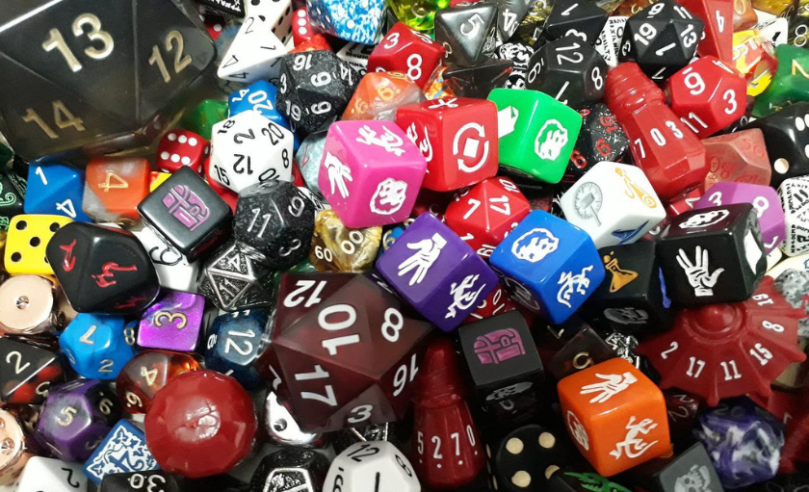
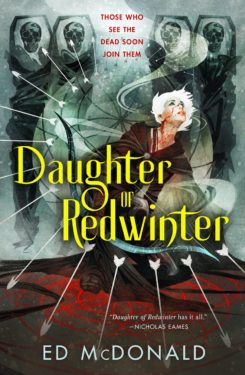 Daughter of Redwinter
Daughter of Redwinter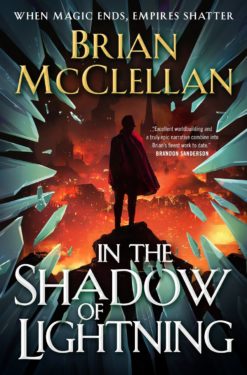 In the Shadow of Lightning
In the Shadow of Lightning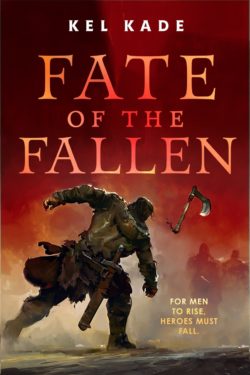 Fate of the Fallen
Fate of the Fallen The First Binding
The First Binding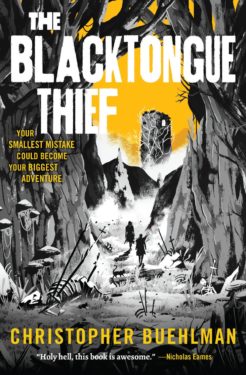 The Blacktongue Thief
The Blacktongue Thief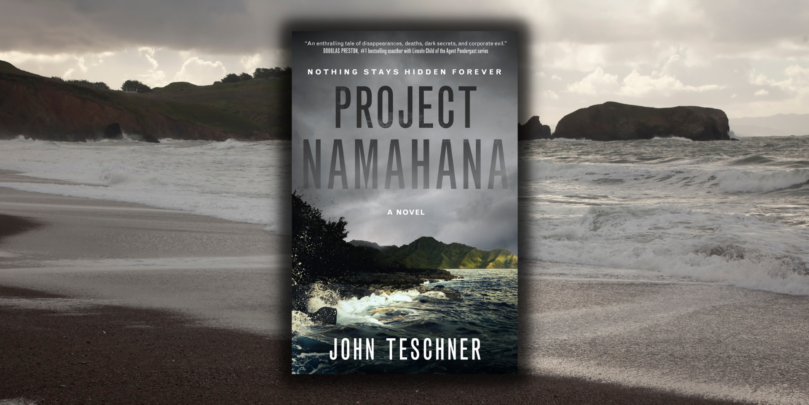

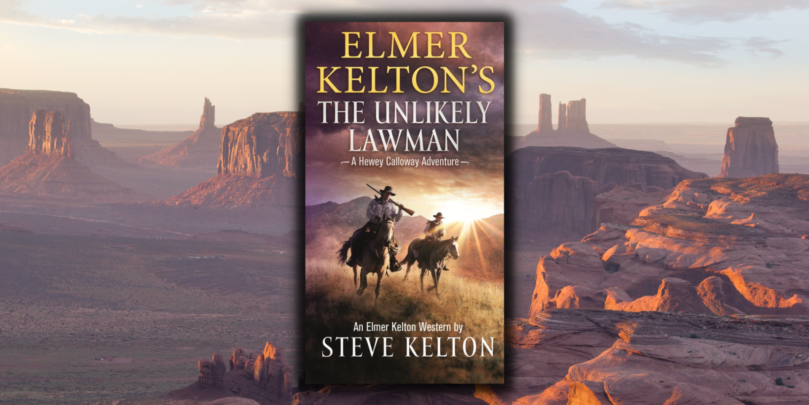
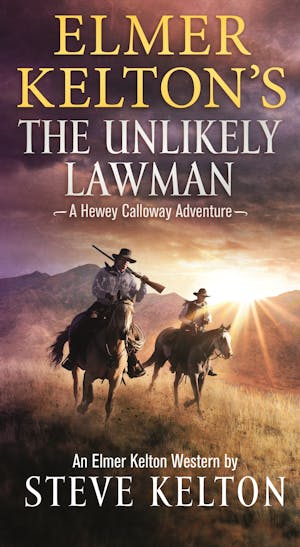

 All legends are born of truths. And just as much lies. These are mine. Judge me for what you will. But you will hear my story first.
All legends are born of truths. And just as much lies. These are mine. Judge me for what you will. But you will hear my story first.